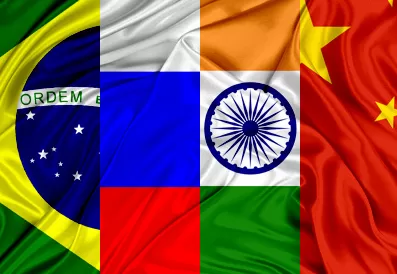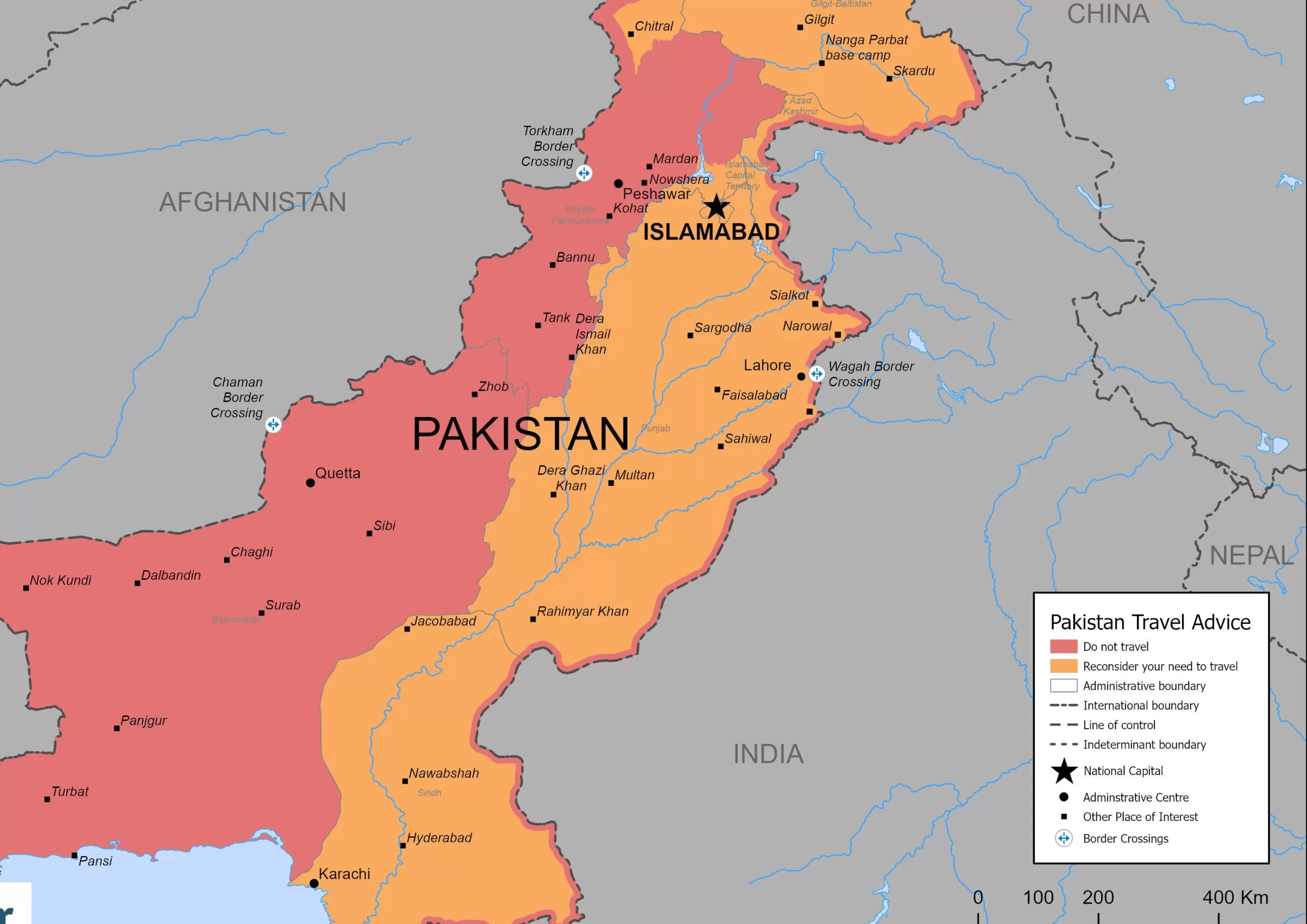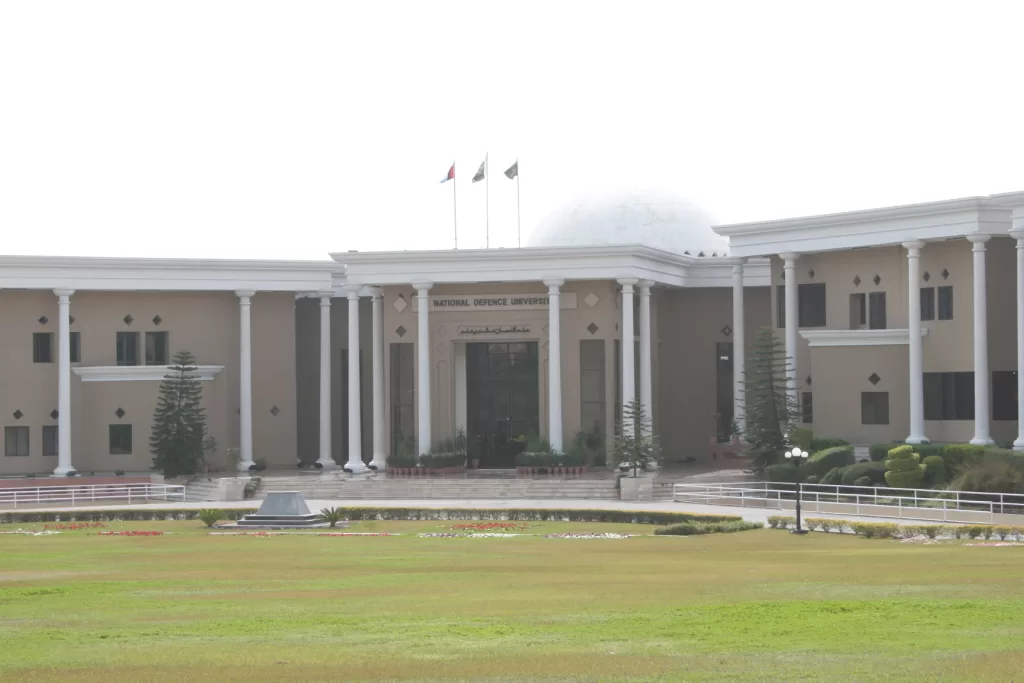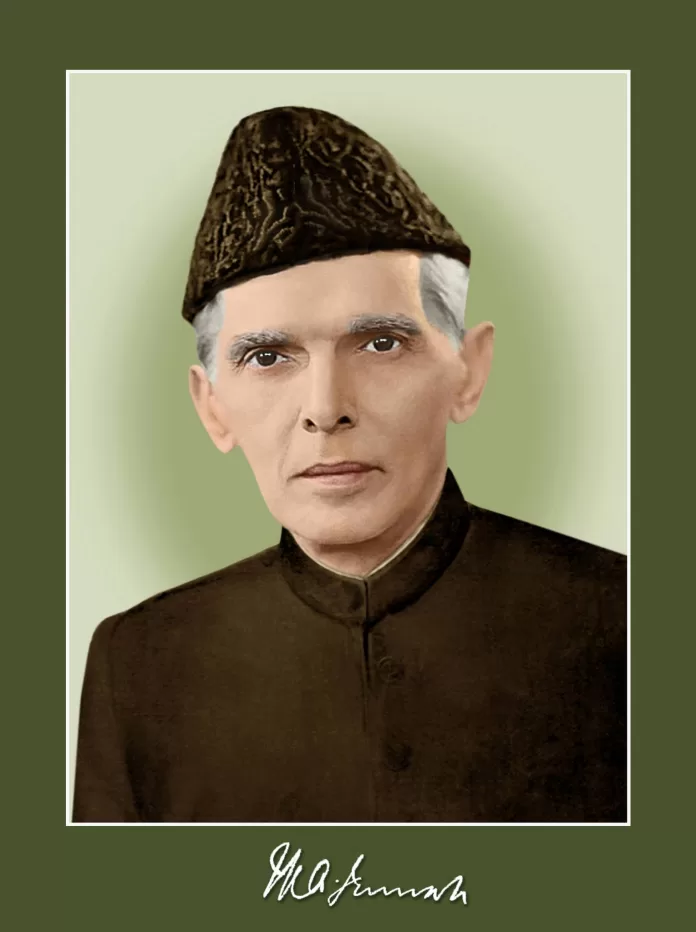“Our foreign policy is one of friend-liness and goodwill towards the nations of the world. We do not cherish aggressive designs against any country or nation. We believe in the principle of honesty and fair play in national and international dealings and are prepared to make our utmost contribution to the promotion of peace and prosperity among the nations of the world. Pakistan will never be found lacking in extending its material and moral support to the oppressed and suppressed peoples of the world, and in upholding the principles of the United Nations Charter.”
Quaid-e-Azam Muhammad Ali Jinnah‘
Evolution of Pakistan’s Foreign Policy: Pakistan began with an independent foreign policy in 1947. Quaid-i- Azam Mohammad Ali Jinnah, the founder of Pakistan and its first Governor-General, gave two special talks on radio to introduce Pakistan to the people of the United States and Australia, which is the quintessential expression of Pakistan’s foreign policy. Pakistan joined the United Nations on 30 September 1947, as a new member and stayed in the Commonwealth. Its leadership established contacts with other states, emphasizing friendship with all, promotion of peace and harmony, support for liberation of the colonised people, and a strict observance of the principles of international conduct as enshrined in the UN Charter. However, it tilted towards the West in a period of 7 years due to serious economic and security pressures2. It maintained a policy of close interaction in the security and economic fields with the West in general and the U.S. in particular in the mid and late 1950s, the 1980s, and now since September 2001. It pursued independent to non-aligned foreign policy from mid-60s to the end of the 1970s and assigned a great importance to its interaction with the Muslim states and the issues and problems of the developing world.
Pakistan is currently an active player in the global efforts for combating religious extremism and terrorism with a policy that these pose serious threats to global security as well as to Pakistan’s internal peace, stability and economic development. Pakistan has made some difficult decisions in pursuing counter terrorism and for ensuring peace and stability in the immediate neighbourhood, in order to boost its image at the international level, restore international confidence in the ability of the Pakistani state and government to put their socio-economic house in order, and shape up as a democratically oriented, modern and enlightened Muslim polity that does not allow its territory to be used by extremist groups.
Pakistan’s Foreign Policy Preferences
Pakistan recognises that it is neither possible nor advisable to stay in isolation in the present day inter-dependent and complex international system. It needs to interact with other states, international and regional organisations and supranational actors in order to protect and promote its national interests and sovereign identity.
The major focus of Pakistan’s foreign policy is security against external and internal challenges to its national identity, territorial and independence. integrity Pakistan’s goals have remained more or less constant, although their scope was often redefined and new dimensions were added to them. The diplomatic and military strategies to pursue these goals varied over time. The changes in the strategies are understandable because a host of factors influence the foreign policy choices of a country, which include the dynamics of regional and international situation, the availability of human and material resources and the disposition and priorities of the policy makers. As these change over time foreign policy must also change fin its approach to bilateral regional and global issues and problems.
Changing Geopolitical Environment
The dynamic nature of geo-polical environment is in transition. Review of the scenario dictates that along with US, China and India are progressing rapidly on the ladders of international power stature whereas Brazil and Russia are also rising slowly. For EU to become a major pole in the coming order, it will need a more coherent approach and a more integrated strategy. Among the Muslim world, Turkey is the emerging Muslim power of the 21st centuenry3. We are now in a new, fast-evolving multipolar world. By 2025, six emerging economies – Brazil, China, India, Indonesia, South Korea, and Russia – will collectively account for about one-half of global growth. For now, the US dollar remains the most important international currency. In Global Development Horizons 20114, the World Bank presents what it believes to be the most probable global currency scenario in 2025, a multicurrency arrangement centred on the dollar, euro, and renminbi5 (Chinese Yuan). The world economy is on the verge of a trans- formative change the transition to a Post American and multipolar world economic order.

The world is changing. It is becoming increasingly multipolar with the emergence of China, India, Brazil, and with the resurgence of Russia – forming the so- called BRIC6. The world is also becoming increasingly interdependent, not only economically as recently illustrated with the US financial crisis turning into a glob- al economic crisis, but also regarding the threats and challenges modern societies face, such as terrorism, climate change, and poverty and energy scarcity.
This multipolarity in the age of interdependence, or interpolarity7 as Giovanni Grevi names it, will most likely shape the 21st century. In this millieu, American efforts are to retain its uni-polarity to a stage where the emerging competitors and challengers are moving to a position of asserting their influence. This is likely to result in geo-economic, geo-political and geo-strategic changes, realignments and re- assertions, in certain regions, which are likely to play important roles.
Significance of Pakistan in International Order: Historian Paul Kennedy8 named Pakistan as one of the nine pivotal states whose future evolution would not only determine the fate of their region, but also affect international stability. He maintains in his article in the Foreign Affairs Quarterly that “progress by a pivotal state such as Pakistan would help not only the region but also promote US interests in trade and in investment”9.
Similarly, in late 2005, Goldman Sachs introduced the concept of the Next Eleven (N-11)10. Its purpose was to identify those countries that could potentially have a BRIC-like impact in rivaling the G7, and Pakistan is one of these countries. The N-11 weight in the global economy and global trade has been slowly increasing, with a contribution to global growth of around 9% over the last few years.
South Asian Security Analyst Stephen. P Cohn11 said “While history has been unkind towards Pakistan, its geography has been its greatest benefit.” Pakistan is located in a region which has great political, economic and security significance. The region has been hub of activities of great powers for decades. Historically, it has witnessed intervention of three great powers including Britain, Ex USSR, and USA. Pakistan therefore sits at the crossroads of strategic interests of major world powers – an unenviable predicament or an enviable opportunity.
Other than that, Pakistan has at least six different regional clusters of countries that represent huge opportunities. These include Afghanistan and Central Asia; Iran and the Middle East; the East African coastline; SAARC countries to the east; the ASEAN countries in the east Indian Ocean region; and China to northeast. There is a need to develop a strategy of engagement with each of these sub-regions to maximise mutual economic and commercial benefits. Pakistan’s security and prosperity in the future therefore depends in a large way on how it exploits this geo-political tangle vis-à-vis these major contenders and different regional clusters. It is here that Pakistan’s ability to generate a cooperative response from the great powers would be tested.
Pakistan has developed as a principal actor and a vital personality of its own. Now it is supposed to secure and protect its all vital interests at all cost. Pakistan should demonstrate and follow an independent and principled foreign policy in the pursuit of its national interests. In the current phase of rap- idly globalizing world, Pakistan’s foreign policy needs a fresh look drastically. The main features of the emerging global order to which our foreign policy has to be adjusted over the coming years in a manner best suited to secure our interest.

Challenges for Pakistan
To maintain the geo-political statús-quo, major US concerns are likely to remain focused on Asia. These include containment of emerging China, sustaining support for a countervailing India, a resurgent Russia and a concerned Muslim world attempting to redefine its place in the world polity. While US led efforts aimed at containment of Russia are stabilizing almost along the original Russian borders in Europe, endeavours to curtail her expansion towards the south and limit Russian and Chinese influence in Eurasian hinterland are underway12.
Pakistan may not and should not become a party to any of the big powers and use its influence to generate a cooperative and all-supportive environment for future stability of the region. Pakistan’s decision makers must appreciate the strength Pakistan has placed itself in, despite the impediments and must not loose this strategic advantage. The success of Pakistani grand strategy depends upon its ability to manipulate co-relation of contending powers to its own advantage.
Opportunities for Pakistan
Any challenge can be turned into opportunity provided suitable response is generated based on natural and acquired strengths. Pakistan has all the natural strenghs needed to make it a strong and progressive country13. These include a large and industrious is nation with a rich cultural and historical heritage, a large and fertile land mass, large fresh water rivers and lakes14, multiple agro-climatic zones, large mineral resources and substantive fossil fuel deposites and important geo-strategic location.
In adition, Pakistan has also acquired strengths, which give it further advantages. These include a large skilled work force comprising excellent scientists, engineers, doctors, technicians, educationists, bankers and bussinessmen, a potentially invigorating and unifying national ideology based on Islam, a large and veteran military equipped with modern weaponary, indiginously developed nuclear capability and a strong and experienced bureaucratic system capable of providing a strong framework for the state structures. Pakistani nation possesses most important trait of resilience15 which was clearly evident in 1965 War, Earthquake of 2005, floods 2010 and 2011and Swat IDP crises.
Although Pakistan has been blessed with natural and acquired strengths in abundance, its image has been deteriorating into a mis-o governed and faild states. Goldman 28 Sachs argued that, since Brazil, 0 Russia, India and China are devel-10 oping rapidly, by 2050 their com- be bined economies could eclipse the combined economies of the current e richest countries of the world. The name ‘BRIC’ was given to this group of countries and it began splashing on every piece of publication ensuring the presence and emerging strengths of the respective countries. It helped build investor confidence in these economies.
In fact, Af-Pak, Islamic bomb and failed state are all marketing buzz words used to brand Pakistan. Pakistan was unable to cash on the N-11. With time, it was clarified that the N-11 may never be as big as BRIC, but they will emerge nonetheless. May be this is not as exciting, but there is a need to pursue the thought in any case. Pakistan is one of the biggest users of the Internet and mobile phones in the world. Access from China to warm waters; from Central Asian countries to the most densely populated democracy in the world, we have it all. Moreover, an overflowing supply of young population. These are signs investors over the world look for. There is a need to exploit the inherent and acquired strengths of Pakistan. Simon Anholt, an expert in nation branding said that ‘Places I can only change their images by changing the way they behave 16“

Realisation of Changing Winds
Fortunately, Pakistani authorities are cognizant of the changing world scenario. A seminar was also held on the topic “The Contemporary Envoirnment: Is a New Cold War in the Making” at National Defence University Islamabad 28 May 2009.
The findings of the seminar were (1) Unipolarity is already declining. The US may be a dominat power in the future but with reduced muscles in the wake of emerging economic O entities. (2) There is an unprecedented transfer of the economic power from west to the rest of the emerging influential blocs (EU, Russia and China). Consequently, this flow of wealth also brings change in their military prowess: these transformations are directed towards big shift in international political system. (3) The direction of Pakistan’s policies must be in con- sonanace with evolving global realities in the next decade. It would be unwise to continue putting all eggs in one basket. (4) A much-needed diversification in Pakistan’s posture should be adequately depicted in the quality and depth of relationship with EU, Russia and China. The policy direction should keep all options open to establish tracks of cooperation and collaborations with these regions or countries.
Adjusting Sails for Multipolarity
The unfolding scenario dictates that in Post American World although many power contendors are emerging, US influence on world affairs will not diminish and would remain a reality for years to come. However, sever mistrust has been created between Pakistan and US in the aftermath of Abbotabad Operation and attack on Salalah Check Post, which needs to be removed.
As Russia, India and China are emerging powers; Pakistan is adjusting sails according to changing winds of multipolarity. Pakistan already enjoys very cordial relations with China. Recently a currency swap agreement has been signed between Pakistan and China for enhancement of bilateral trade”.17 To increase cooperation and interdependence with India, Pakistan has decided to grant Most Favoured Nation (MFN) staus to India. Recently a new gate has been opened at Wahga Borders, Lahore for bilateral trade with India. To improve relations between business communities, exhibition of Indian products was organised in Pakistan and same was reciprocated by Pakistan.
In part of regional approach, within the framework of trilateral cooperation Presidents of Afghanistan, Iran and Pakistan held the Third Trilateral Summit. in Islamabad on 17 February 2012. The three Presidents pledged to enhance cooperation among the countries comprehensively for realizing the shared aspiration of their peoples for peace, security, stability and economic prosperity.18
Turkey and Pakistan already enjoy very cordial relationship based on common heritage and similar views on world affairs. Recently a currency swap agreement has been signed between Turkey and Pakistan on 01 November 2011 for enhancement of bilateral trade 19.
Pakistan has diplomatic relations with Brazil and has purchased 100 MAR-1 SEAD20 missiles from Brazil in 200821 for Pakistan Air Force. This initiative was aimed at diversification of defence procurement and greater engagement with South American Countries.
Pakistan has also started pursuing good relations with Russia. At the invitation of Russian Foreign Minister Sergey Lavrov, the Foreign Minister of Pakistan, Mrs. Hina Rabbani Khar paid an official visit to the Russian Federation on 7-9 February 2012. Earlier President Asif Ali Zardari’s under- took official visit to Moscow in May 2011 and Prime Minister Syed Yusuf Raza Gilani met with his Russian counterpart on the side-lines of the SCO’s Heads of Government meeting in November 2011. The two sides agreed that the Shanghaible Cooperation Organization (SCO) had become an important forum for regional security and economic cooperation. The Russian side re-affirmed its support for Pakistan’s full membership of the Organization.22 Negociations are also under way for modernizing Pakistan Steel Mills with assistance of Russia.
Conclusion
To sum up, world history is full of tales of rising and falling empires. Power centers emerge on the world and diminsh with the time. The only permanent attribute of the world order is change. Twenteeth century has seen the transformation from multipolar world prior WWI to bipolar world after WWII and finally the unipolar world after the demise of Soviet Union. The 21st century is believed to be a Post American World with multipolar world order where US will no doubt have the significant role but along with US, China, India and Russia are likely to appear as major economic poles. It is the need of the hour to adjust our course according to changing winds. The engagement with rising powers is required in diplomatic, economic and defence forums in order to meet challenges and exploit opportunities provided by emerging scenario.
Pakistan started its foreign policy as an independent, soverign and non- aligned state. However, repeatedly it had aligned to West in order to protect its security concerns and socio-economic uplift of the country. These alignments have resulted into a donor-based economy23, tarneshed the social fiber of the society and stopped the economic uplift of the country due to deteriorating law and order conditions. Pakistan already enjoys very cordial relations with China and Turkey. Pakistan has started pursuing its relations with other emerging powers, Brazil, Russia and India. There is a need to formulate an independent and soverign foreign and economic policy24 to cater for the future changes in the international order and to capatalise on the strengths enjoyed by Pakistan.
Recommendations
In view of the changing scenario, recommendations are made in ensuing paragraphs.
Pakistan should capatalise on regional countries for better trade, investment and energy shortfalls. The existing forums of ECO, SAARC, SCO and OIC may be exploited for diversified foreign policy options.
The existing relations with US may be fostered for long-term benefits of the country. The mistrust caused by Abbotabad operation and Salalah Check Post attacks may be removed after mutual discussions and not comprising on core national interests.
Avenues be explored for greater cooperation with Russia. Modernization of Pakistan Steel I may be taken as springboard for enhanced cooperation.
The cooperation and collaboration with Turkey and China be further enhanced to people to people level.
India’s rise as an economic giant eqipped with requisite hard and soft power is a reality. Options may be explored to engage with India on win- win situation without compromising on national interests. Bilateral trade and transit trade to Central Asian Region are considered the important aspects, which can be beneficial for both states. These initiatives are likely to increase economic dependence of India on Pakistan, which can be used to avert wars.
Concerted efforts are required to improve image of Pakistan for forseign investments and to change the destiny of the country. Notions of N-to diplomatic forum almost eight years later. 11 and pivotal states may be exploited to generate favourable perceptions among international community and foreign investors.
The available manpower be trained and used as an asset for domestic and overseas human resource reqirements.
Dedicated research work on Post American World/ multipolar world be carried out in education- al institutes of Pakistan with respect to dynamics of multipolarity and Pakistan’s foreign policy with future powers.
End Notes
1. Quaid e Azam Muhammad Ali Jinnah adress on radio to people of USA in Foreign Minister Mrs Hina Rabbani Khar’s statement at the General Debate of the – 66th Session of United Nations General Assembly on 27 Sep 2011.
2. Hasan-Askari Rizvi, Pakistan’s Foreign Policy: An Overview 1947-2004 (Lahore: Pakistan Institute of Legislative Development And Transparency, PILDAT, 2005), p.27.
3. Muhammad Zarrar Haider, Emerging Multipolar World, Pakistan Observer, February 28, 2012. Available at http://pakobserver.net/detailnews.asp?id=1gence of new, “pivotal” states important in 42405.
4. Justin Yifu Lin and Mansoor Dailami, Are We Prepared for a Multipolar World Economy? (June, 2011).
5. The World Bank, Global Development Horizons 2011, Multipolarity: The New Global Economy, (2011).
6. The Renminbi (RMB, sign: ; code: CNY; also CN¥) means “People’s Currency”, is the official currency of People’s Republic of China. Renminbi is 10 legal tender in mainland China, but not in Hong Kong or Macau. It is issued by the People’s Bank of China, the monetary authority of China.
7. BRIC acronym and concept was coined in 2001 by Goldman Sachs analyst James O’Neill in order to encourage investment in emerging economies, without any idea that his concept would turn into a real diplomatic forum almost eight years later. On 16 June 2009, the heads of state of the four BRIC countries (Brazil, Russia, India and China) held their first official summit in Yekaterinburg, Russia, at the end of which they claimed “a more democratic and just multipolar world order”.
8. Based on a diagnosis of current developments, Giovanni Grevi argues that many factors point to the emergence of an ‘interpolar’ world. Interpolarity can be defined as multipolarity in the age of inter- dependence. The redistribution of power at the global level, leading to a multipolar international system, and deepening inter- dependence is the two basic dimensions of the transition away from the post-Cold War world. See Giovanni Grevi, The Interpolar World: A New Scenario.
9. Paul Michael Kennedy (born 1945), is a British historian at Yale University specialising in the history of international relations, economic power and grand strategy. He has published prominent books on the history of British foreign policy and Great Power struggles. He emphasizes the changing economic power base that few undergirds military and naval strength, noting how declining economic power leads to reduced military and diplomatic weight.
10. The diplomatic historian Paul Kennedy, and his associates, have forecast the emertogence of new, “pivotal” states important in regional politics, regional development, preventive diplomacy, and global stability/ gover e.g., India, Algeria, South Africa, Egypt, Brazil, Mexico, Turkey, Pakistan, and Indonesia. Letheredge, Pivotal States” and Forward Observation Sites, (World Academy of Arts and Science, Decmber, 2009).
11. The N-11: More Than an Acronym, Goldman Sachs Economic Research. (Global Economics Paper No: 153, March 28, 2008).
12. Stephen P. Cohen is an American political scientist. He is an expert on Pakistan,-India, and South Asian security. He is a senior fellow in foreign policy studies at the Brookings Institution and an emeritus professor at the University of Illinois at Urbana-Champaign.
13. “Salman Shah, Geographical Realities, Dawn, September 27, 2011.
14. Khan A. Sufyan, Pakistan’s Geopolitical Dilema China or US: Viewpoint from Pakistan, (March 26, 2011).
15. Proceedings of Seminar, Counter Insurgency Operations, (Command and Staff College, Quetta, November, 2011), p.18.
16. Interview with Mr Razi ud Din Sayed, Author of Book, America Zawal Ki Janib, on 16 Nov 2011.
17. Interview with Prof Rana Ejaz, Political Science and Diplomacy Department, Punjab University Lahore on 6 Jan 2012.
18. Samir Butt, Would you buy Pakistan? The Express Tribue Blogs, (August 2, 2010).
19. Pakistan and China Sign Currency Swap Agreement, Dawn December 23, 2011.
20. Pakistan Ministry of Foreign Affairs Press Release 038/2012 (Februaury 17, 2012).
21. State Bank of Pakistan Press Release (November 1, 2011).
22. SEAD: Suppression of Enemy Air Defence. Missiles are used to destroy enemy air defence batteries prior any air strike on enemy airfields and vital areas.
23. “Brazil to Sell MAR-1 SEAD Missiles to Pakistan, Defence Industry Daily. (December 03, 2008).
24. Pakistan Ministry of Foreign Affairs Press Release 031/2012 (February 9, 2012)
25. Interview with Mr Amir Rana, Director Pakistan Institute of Peace Studies Islamabad on 30 Jan 2012.
26. Interview with Rear Admiral Pervaiz Asghar, DG National Center for Maritime Policy Research Karachi on 15 Nov 2011.




